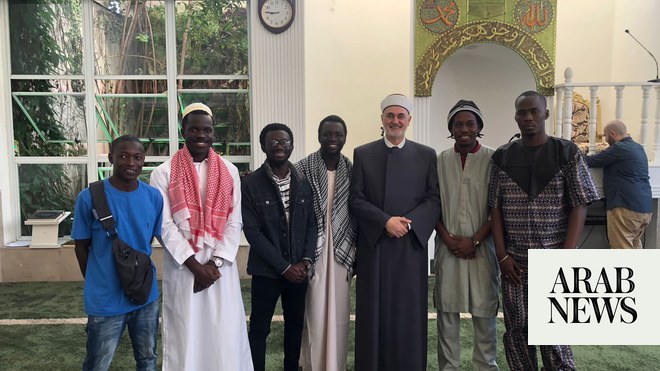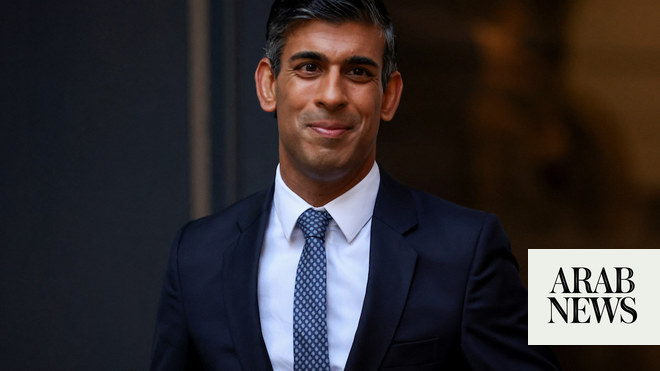
For decades, Sao Paulo had only one central mosque, where all celebrations were held. But the growth in the number of Muslims and the progress made by the community required community leaders to establish new mosques.
SAO PAULO – A unified Eid Al-Adha celebration on June 28 gathered members of 17 mosques of Sao Paulo state in Brazil for the first time in the community’s history.
At least 3,000 people attended the event, which was held at a private venue in the city of Sao Bernardo do Campo, on the outskirts of the city.
The initiative was started by Omar Mohamad Hindi, president of the Esporte Clube Sultan, a social and sports club founded decades ago by Muslim immigrants who came from the Lebanese village of Sultan Yacoub, in the Beqaa Valley, near the Syrian border.
“Since I took office, I decided that it was about time to gather all communities. I wanted to promote a joint celebration and to intensify our community work, bringing to the party people who normally could not afford to attend an event like that,” Hindi told Arab News.
Traditionally, each community would promote its own celebrations, a historical consequence of the way that Levantine immigrants who arrived since the end of the 19th century — and still represent a major share of the Muslim population in the South American country — settled in Sao Paulo.
“A man would come alone from Syria or Lebanon and after settling would invite his relatives to join him, providing every kind of support, including money,” described Syrian-born Sheikh Jihad Hammadeh, a prominent Muslim leader in Brazil.
Most of the men worked as salesmen and led tough lives. The rare free time they had was spent with family, one additional reason for groups of relatives to live near one other.
“This way, each Muslim community in Sao Paulo used to be formed by people who came from the same village in Lebanon or Syria,” Hammadeh added.
For decades, Sao Paulo had only one central mosque, where all celebrations were held. But the growth in the number of Muslims and the progress made by the community required community leaders to establish new mosques.
Mosques established in each neighborhood partially reflected initial group divisions, with a considerable portion of worshipers having ties to a specific region of the Levant.
At the same time, many transformations occurred. The younger generations gradually left their traditional neighborhoods, new waves of Muslim immigrants arrived from different locations in Asia and Africa, and many non-Arab Brazilians converted to Islam. The demographics of most Muslim communities underwent considerable changes.
“A unified Eid Al-Adha celebration was important now to change the traditional dynamics and embrace the Muslim community as a whole, including people who do not have their families living near them in Sao Paulo,” Hammadeh said.
Hindi made intense efforts to organize the celebration along with the mosques. His team visited 17 of them over the past two months, inviting them to participate in and contribute to the event.
Some communities could offer financial support, buying additional tickets and distributing them to poor Muslim families and groups. Mosques, companies and individuals made donations for the party, offering prizes for the raffle promoted during the event. The Sultan club hired 10 buses to transport people to the venue for free.
“It was a huge success. We reunited people who had not seen each other for several years. We welcomed Muslim individuals who live in Sao Paulo by themselves. We prayed together,” Hindi said.
Hammadeh said: “The Muslim community in Sao Paulo is diverse and the celebration reflected it, with people from Afghanistan, Guinea-Bissau, Senegal, Ghana, Nigeria, Syria, Mozambique and converted Brazilians.
“For immigrants and refugees, that was a particularly special occasion. The idea was to bring them to the center of our community and to show them that we are all branches of the same tree.”
Sheikh Mustafa Anis Orra has been heading a mosque in the Interlagos neighborhood for 30 years. His community includes people from Bangladesh, Syria, Lebanon, Egypt, Pakistan and elsewhere, “each group with its own cultural habits but all with the same goal of worshiping Allah,” he said.
“They were very happy to spend our most important holiday in the company of so many Muslim brothers. That is the true meaning of Islam, to get together and unify our hearts,” he told Arab News.
Mohamad Malam Dabo, a 31-year-old Bissau-Guinean who is completing a master’s degree in linguistics at the University of Sao Paulo, attended the event along with a group of African colleagues.
“Not even in Guinea-Bissau had I ever been to a celebration like that. It was truly a memorable event,” he told Arab News.
After five years away from his home country, he misses Eid Al-Adha celebrations with his relatives, when people generally wear new clothes and have dinner with their extended families and neighbors.
“To be with the whole Muslim community in Sao Paulo was like being at home. We got to know several people, including Muslim leaders. If we had stayed alone at home, it would have been a painful day,” he said.
Dabo created a WhatsApp group with his Muslim colleagues at the university and they make a constant effort to incentivize each other’s faith. The celebration earlier this week gave them renewed energy.
“Living in a country that does not have a Muslim majority can be difficult at times in religious terms. But here in Sao Paulo we feel that there is a strong community,” he said.











